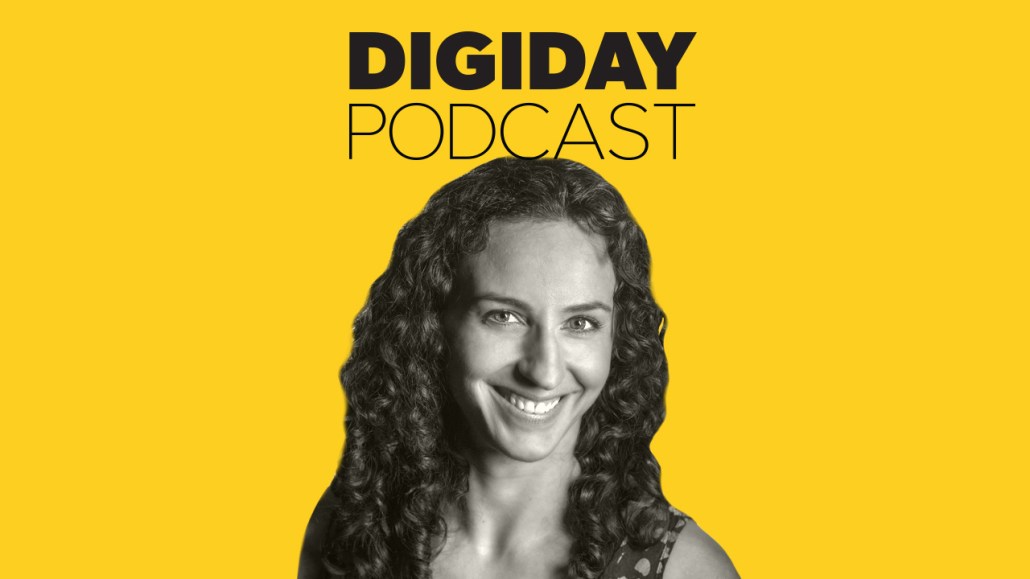Secure your place at the Digiday Publishing Summit in Vail, March 23-25

Subscribe: iTunes | Google Play | Stitcher | Anchor
Publisher interest in podcasts is at an all-time high. But figuring out exactly what kind of storytelling model is ideal for audiences, as well as metrics for success, still remains difficult.
On this episode of the Digiday Podcast, as part of five-episode series where we invite guests to dive deep into the mechanics of making products that make money, we took an in-the-weeds look at what makes a successful podcast strategy.
“We know there’s a group of avid podcast listeners out there,” said Jessica Stahl, director of audio at the Washington Post. “Then there’s a larger group of people who never listen to podcasts. That’s a huge opportunity. Because we have a strong brand already, we can make a lot of efforts and give them alternate ways to listen to the podcasts we’re making. We haven’t solved it but we’re working on it a lot, using our ability to reach people through our website. The more that we can play with the strength of our audience and reach, the better it is for our podcasts.”
Stahl discusses the evolution of podcasting formats, using the available podcasting metrics and more on this episode. Edited highlights below.
Podcasting has expanded beyond the talk show format.
“What we’re trying to do at the Washington Post is reflect the best reporting and storytelling that our newsroom has to offer. All of our programs are oriented towards that. It’s high-quality storytelling. It’s not a talk-discussion type of podcasts that are proliferating out there. Podcasting has developed a lot over the past several years. The form that many people think of as podcasting is what existed in the early stages, that is the talk-radio formats. It’s personality-driven, where you expect them to build an audience over time. That’s one model but then Serial happened. It showed this other model, which was a short-run mini-series format that builds an audience like a Netflix show, where you’ll binge it and love it. There’s many things in between and people are experimenting with the format. People release two-months material at a time and then take a break and come back two months later. So the idea people had about podcasts as a talk show is shifting towards an expanded view that when we say podcasts, it just means audio.”
Discovery is a persistent question with no answer from platforms.
“The podcast system is going to have to develop. It’s very Apple podcast-centric right now. A majority of our listeners come through the Apple podcasts platform. We also promote Google podcasts, Spotify, iHeart radio and others. We make it clear as we can to the people on where they can find these podcasts. But the next step in podcasting, if we’re going to solve this problem of the glut of material, is going to be some development around the way people get their podcasts.”
The metrics are lacking despite the digital age.
“The one metric you can get consistently across all platforms is listens and downloads. That’s the only thing you can see in the aggregate. I come from a social media and digital media and audience background. I’m used to an environment that has sophisticated metrics and the challenge is how to take all the information and make sense out of it. And now it’s the opposite situation. We take what we can get and extrapolate. We have sophisticated metrics for listens on our own platform, we have upgraded metrics that Apple is offering now and you pull you get from that.”
We are hosting our next live podcast event on February 7 in New York City at Vox Media headquarters. Please join us for a conversation between Brian Morrissey and Vox Media publisher Melissa Bell. Sign up here.
More in Media

Media Briefing: As AI search grows, a cottage industry of GEO vendors is booming
A wave of new GEO vendors promises improving visibility in AI-generated search, though some question how effective the services really are.

‘Not a big part of the work’: Meta’s LLM bet has yet to touch its core ads business
Meta knows LLMs could transform its ads business. Getting there is another matter.

How creator talent agencies are evolving into multi-platform operators
The legacy agency model is being re-built from the ground up to better serve the maturing creator economy – here’s what that looks like.







